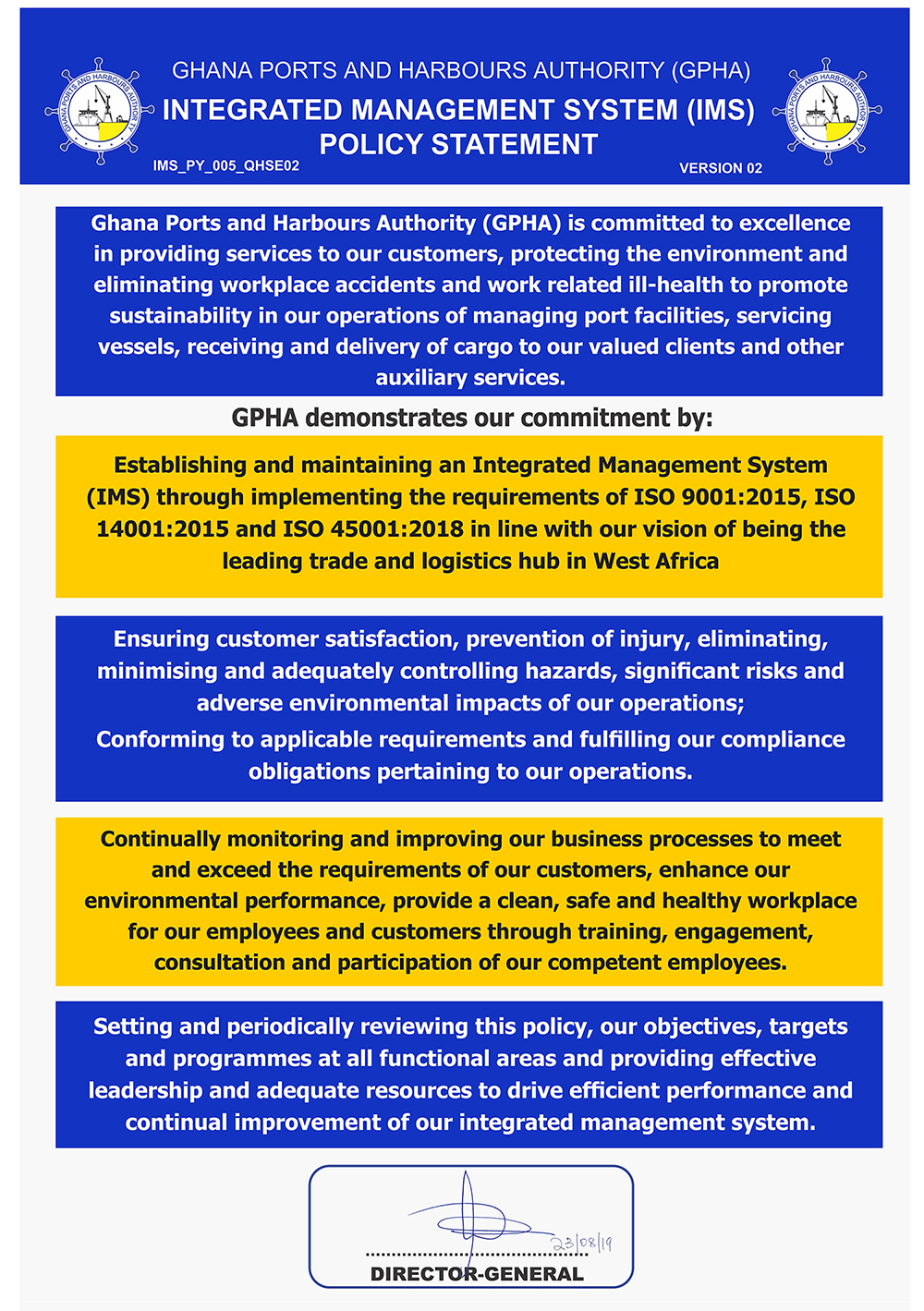

Experts within Ghana’s Maritime Security sector, have called for more investment to be made towards improved maritime security to protect Ghana’s territorial waters following rising maritime insecurity threats across the West African sub-region.
Speaking on Eye on Port panel on Strengthening Ghana’s Maritime Security: Lessons in 2019 and Strategies for 2020, the Executive Director, Centre for Maritime Law and Security Africa, Naval Capt. RTD Dr. Kamal Deen-Ali called for the creation of a maritime security fund to combat insecurity threats more efficiently.
“We should have a maritime security fund. A fund that we draw in money from the various sources from which we raise money: Port charges, Oil and gas and other services that we provide. So let’s put something together and build a fund and from that fund you can be able to tool and operationalize the navy and the other security agencies,” he suggested.
He said, the government’s yearly budget allocation to the navy alone would not be adequate for the Country’s long term maritime security ambitions and called for a more sustainable source of funding.
“It is not possible to depend on government to look into its budget and be able to yearly support the long term funding and the long term tooling or retooling of the security agencies especially the navy,” he added.
The Commander of the Marine, Port and Railways Unit of the Ghana Police, Chief Superintendent Joseph Antwi-Ababio, also revealed that the operational cost of manning patrol boats are proving to be a major challenge and called for reliable funding sources for maritime security activities.
He said the national integrated maritime strategy that is being drafted, should consider the proposed maritime security fund and its efficient management.
“They are in a process of drafting a National Integrated Maritime Strategy and as part of it there are lots of recommendations, and one of our recommendations is about having a fund that the security institutions can source their funding from,” he revealed.
The Tema Port Security Manager, Col. Joseph Malik Punamane advised that air patrol becomes an additional means of securing Ghana’s territorial waters.
“They have to look at the air force for routine maritime heli-patrol. But this one involves cost so the MPS, GPHA and GMA should come together and go to the Air force and negotiate,” he proposed.
He expressed worry that while Ghana’s state security agencies are working hard to keep its territorial waters safe, the seeming insecurity experienced in neighbouring countries along the Gulf of Guinea, may render Ghana’s hard work futile.
“My worry is that we are doing well to secure our coastline but our neighbours are not safe. Every country needs to play its role effectively so we can all be safe,” he added.
Dr. Kamal Deen-Ali, said Ghana’s trump card of good security is losing its influence as the country’s international trading partners are more likely to conduct a regional assessment when making business decisions than assess Ghana in isolation.
“Although we stand out as a safe country and a safe Port we are still facing the consequences of the larger insecurity in the region when it comes to high insurance, high freight and everything else,” he stated. He revealed that in 2019 the Gulf of Guinea recorded about 228 incidents of piracy and armed robbery on sea which is a slight improvement over that of 2018.
However, he said abductions for ransom and kidnappings have increased indicating that human lives are now more at risk than ever.
Dr. Kamal Deen-Ali added that, the Gulf of Guinea has proven to be a target zone for pirates and armed robbers because of the general insecurity in the region that has extended onto the maritime domain, which is far more lucrative. He said the Niger Delta enclave continues to be a breeding ground for well-equipped maritime criminals and this would remain so, if the area continues to be ungovernable.
“That enclave continues to still be the highest supplier of pirates or piracy incidents in the region. So as long as the Niger Delta still remains unstable and ungovernable then there is an area that have people that have got the skills and ability to conduct crime and also have a way of evading security forces in Nigeria and for that matter, their crime will spread.”
He also called for a holistic approach to tackling maritime security to include both land and sea.
He said improving the social-economic welfare of the society is so vital in mitigating the growth of alleged militia group involved in the criminal acts.
“Some of those concerns are creating employment, giving opportunities to the youth, raising people’s standard of living, making sure that as a country, we never have the fracture existing in our country where crime will be something that is consolidated,” he recommended.
Col Punamane also attributed the incessant rise of piracy in the Gulf of Guinea area to illegal oil bunkering at sea, where according to him vessels lay vulnerable to be attacked during their wait for bunkering.
He disclosed that his outfit is also on a campaign to rid all illegal settlers around the port enclave and praised the existing inter-regional cooperation between countries in the region but urged it to be improved.
“The pirates live on land and interact with the locals, and they plan towards their activities on land. So that prompted us to conduct those swoops around the port environs to make sure we clear the criminals out of the place, because that’s where they can plan,” he expressed.
He said inter regional cooperation that exist, when strengthened between counties within the Gulf of Guinea area would go a long way to combat crimes such as piracy.
Chief Superintendent Joseph Antwi-Ababio explained how beneficial a structured community is to policing, adding that communication to acquire information is key to having the needed intelligence to act on and prevent organized crime.